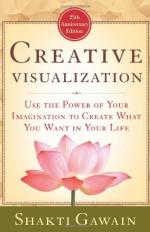|
This section contains 3,055 words (approx. 11 pages at 300 words per page) |

|
Imagination is generally held to be the power of forming mental images or other concepts not directly derived from sensation. In spite of the popular usage of the term, the majority of philosophers from Aristotle to Immanuel Kant considered it in relation to knowledge or opinion. They conceived it either as an element in knowledge or as an obstacle to it—as in Plato's attack on art—or as both an obstacle and an element. David Hume is a representative of the last view: "Nothing is more dangerous to reason than flights of the imagination, and nothing has been the occasion of more mistakes among philosophers." Yet in the same place he wrote of the understanding as "the general and more established properties of the imagination" (Treatise of Human Nature, Book I, Part IV, Sec. vii). The fancy, the power of the imagination to combine ideas in fantastical...
|
This section contains 3,055 words (approx. 11 pages at 300 words per page) |

|


